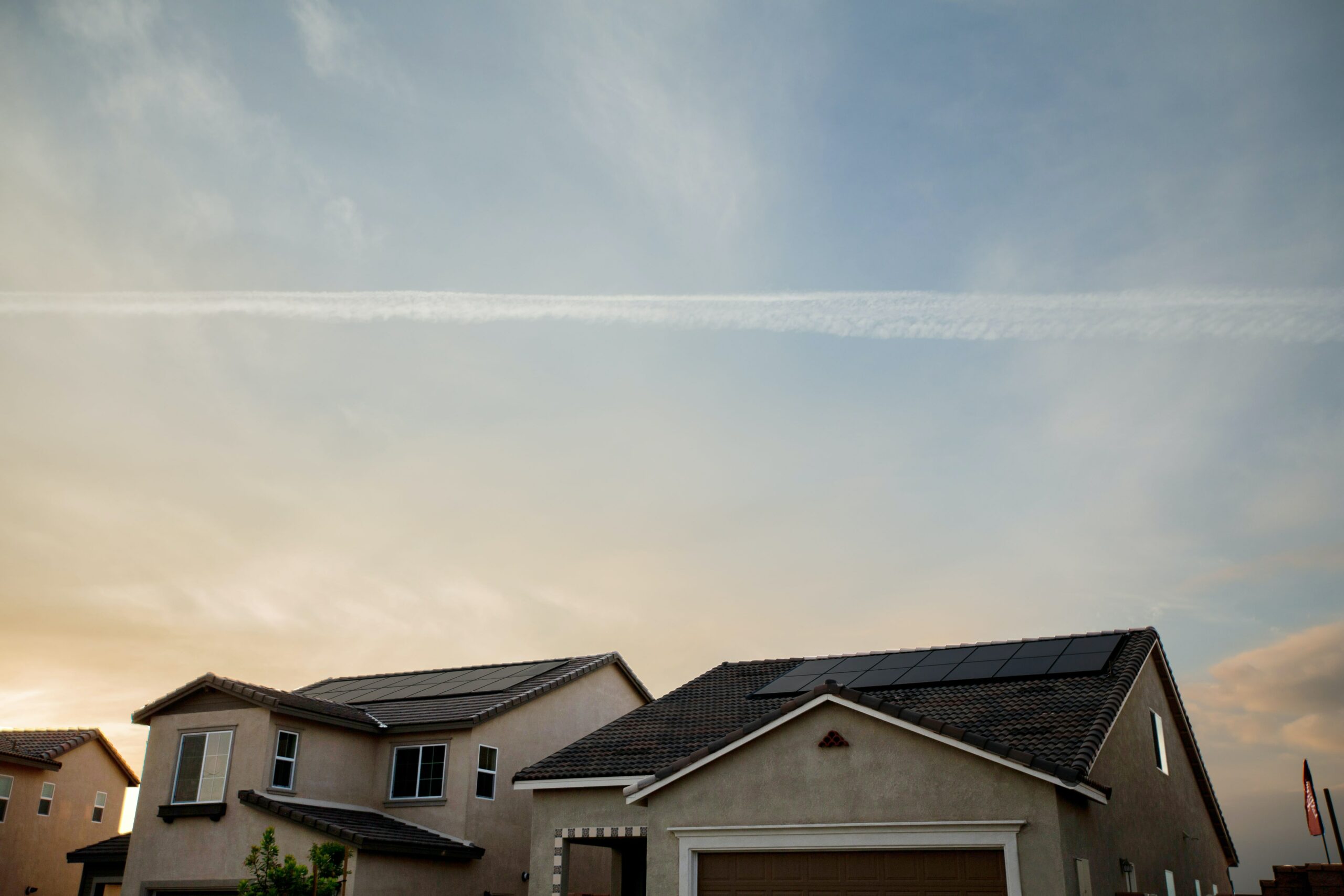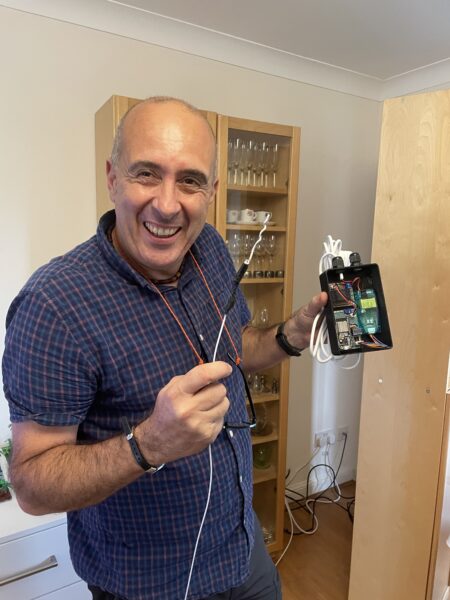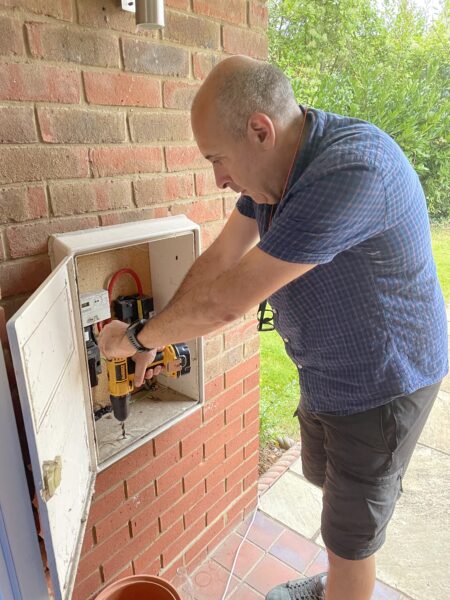- Case studies
- Home-Owner Pioneers for Energy (HOPE) Group

Home-Owner Pioneers for Energy (HOPE) Group
This trial aims to explore the role and impact individual households can have in a smart local energy system and delivering flexibility services.
Background
Households are at the centre of the local energy system for their sheer number and, most importantly, because it’s where people live. The transformation of the energy system to zero carbon requires significant societal change and societal change starts with people.
Although a single household might be insignificant in its energy profile (use, generation, and storage), when added up, the collective becomes significant at any level of the energy system.
Households are an integral part of a smart local energy system (SLES) and need to be actively considered in the design of these systems for them to function. The collective energy behaviour of households will determine how effective that system is, and the extent to which it’s possible to coordinate that behaviour will be an important factor in optimising the system so that it works for the people that use the energy.
Project LEO includes trials that will involve households and householders, however members of the team delivering Project LEO realised three key things:
- As individuals their experience of being an active participant in a smart local energy system was lacking. We see the value in ‘learning by doing’ and we wanted to experience first-hand what’s involved in being active participants at the grid edge to learn about the practical challenges that need to be overcome to support mass participation of households;
- Despite the roll out of smart meters and the increasing smart products and services available to householders, accessing the data needed to find the opportunities, design the trials, and demonstrate how householders can be ‘active agents’ in a smart energy system is limited; and,
- Because data protection and security is important, any trial that accesses domestic energy data needs to be done carefully and with full transparency for participants – something which can be tricky when the trial is exploratory in nature.
So, in this trial members of the Project LEO team decided to experiment on their own households*.


Aim of the trial
The trial is looking at how energy-smart households can be active agents in a SLES. We are exploring how a household’s energy profile can adapt to meet the householders’ needs as well as benefit the whole energy system and the wider community.
The trial aims to explore the technical, logistical, financial, and social opportunities and barriers that exist in encouraging households to participate in a smart local energy system. In particular the trial aims to plug a gap in understanding in the wider Project LEO activities regarding domestic-scale flexibility, starting from the “bottom-up” with the smallest part of the domestic energy system: a single household.
There are lots of smart products coming out that may help households manage their own energy and increasing the extent to which they are “self-consuming households” i.e. what percentage of their energy use is generated by renewables on-site such as rooftop solar panels. However, there is a gap when it comes to how all these products are effectively managed as a collective (to increase self-consumption) or how households with different energy generation capability and energy consumption needs can act collectively to increase the self-consumption of their community.
A fundamental element of the trial is that it will gather the real-world experience of individuals attempting to interact with their energy system. Much of the work around SLES to date has been theoretical.
Our aim is to learn, by doing, about the realities of trying to participate in a SLES and unlocking the potential at the grid edge.
Ultimately this trial is a first phase in which an exploratory set of activities will be undertaken with the participating households with a view to creating the evidence basis for a slightly larger future trial with a wider set of households.
What we hope to learn
Technical
We hope to understand how energy data from a household, alongside other data about the national and local grid can be used to identify opportunities and issues that arise from encouraging households to participate in a SLES.
We are looking into issues of connectivity – how to communicate with things like meters, appliances or electric vehicles (EVs) as well as how to control such devices.
The need for connectivity is common to all participants in a SLES, not only households. But there are particular things to bear in mind when it comes to households and the people who live in them. We will be learning how best to get access to properties, where and how to plug things in, how best to connect to the internet, how to deal when experimental pieces of kit needing regular tweaks, how best to engage people, and how to control their appliances.
We’re also looking at functionality – how we can have meaningful interactions with these devices. For example, if we need to control a heat pump, we need to develop more complex decision-making functionality which considers many other signals such as interior temperature, household preferences, electricity price, and network capacity.
Desirability
We hope to learn about the potential value creation households can enjoy with the development of this technology. We are assuming that much of the value created is not monetary, rather households could benefit, for example, from a more comfortable, energy efficient home.
We will also explore some of the potential barriers that make smart household measures unattractive. A key one that we’re already aware of is concern regarding energy data, who has access to it and how it is used. It is important to understand how we can ensure data protection so that if we want to run wider trials in the future we can recruit people outside of the Project LEO team and give them all confidence in data security.
Who is involved?
This is a small trial involving five households, all of which are households of members of the Project LEO consortium.
The HOPE trial is an incredible opportunity to experience what being an active user of electricity at the grid edge feels like first hand. There is nothing like trying to do something yourself to quickly unearth some of the obstacles that exist in our every day lives, that stop even the best intentioned from doing the right thing energy wise. The more of these barriers we can identify and overcome, the better chance we have of making it easy for everyone to get involved.
*It should be noted that all the participants signed up on the basis that there would be no incentive funded by the project. Any action that they could take anyway, they would cover the costs of (for example if they chose to have Cosy Homes assessment) but costs related to the access and analysis of data were covered by the project (for example the production of a bespoke smart energy box that monitors energy use and may potentially control household appliances costs was paid for by the project).